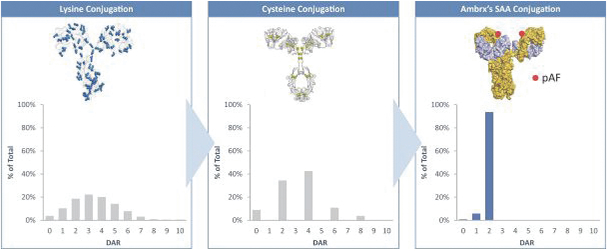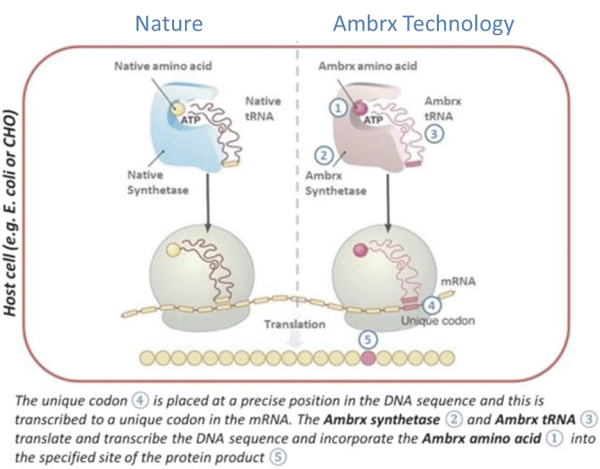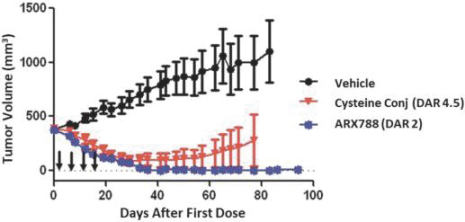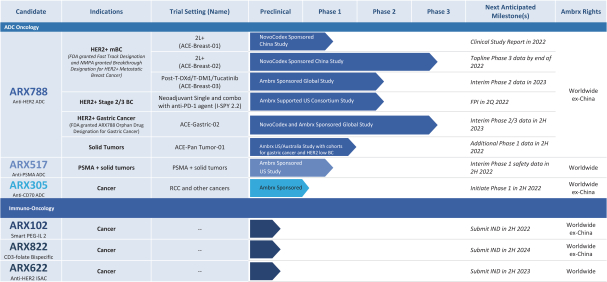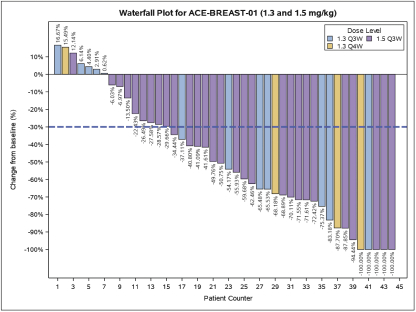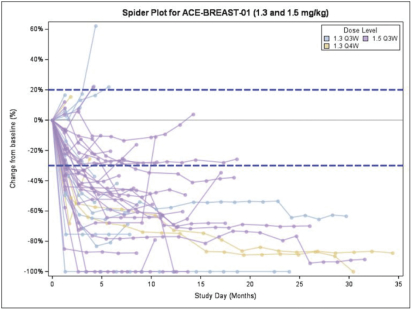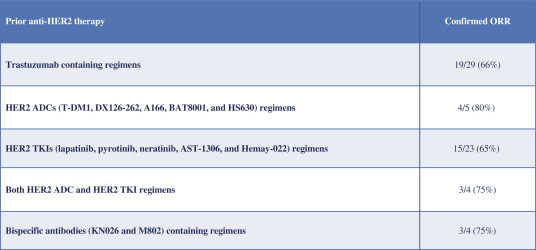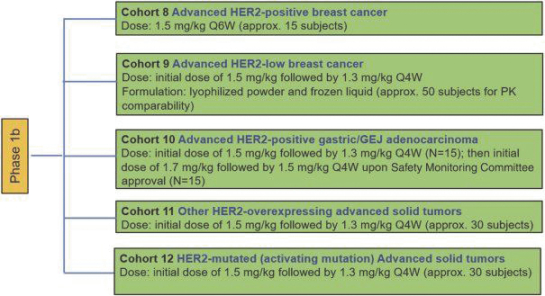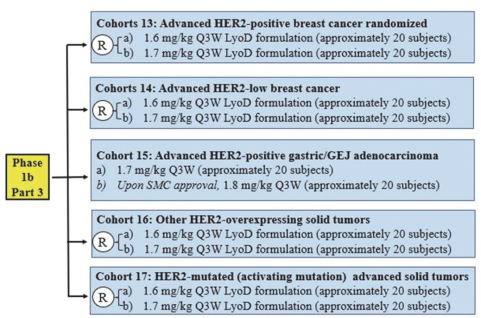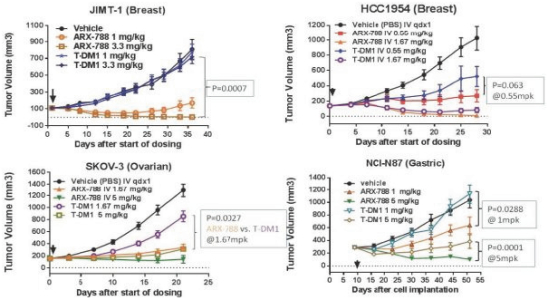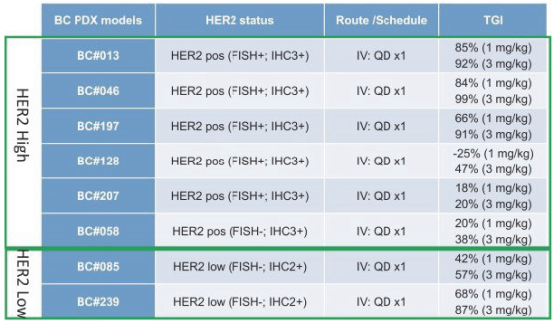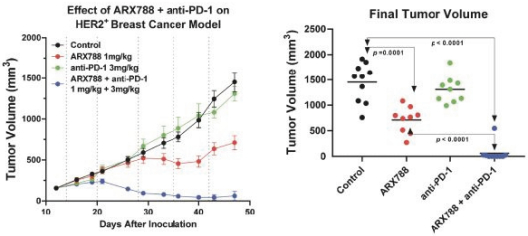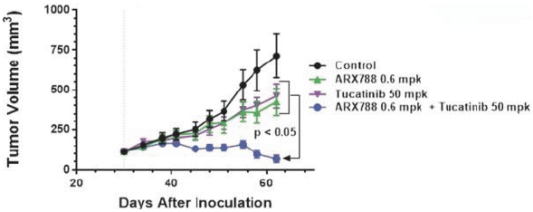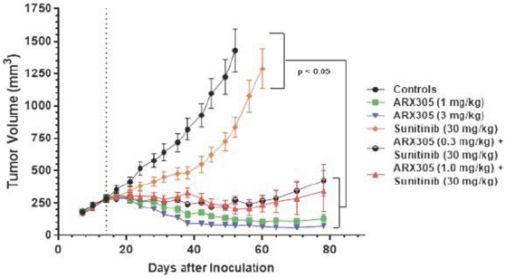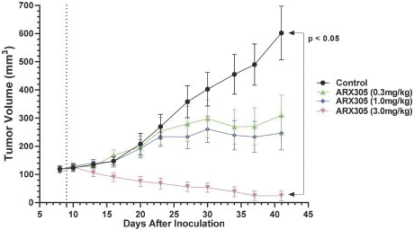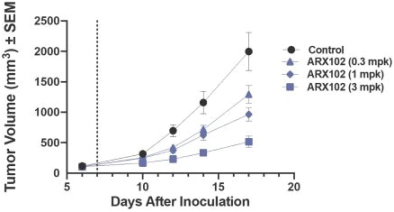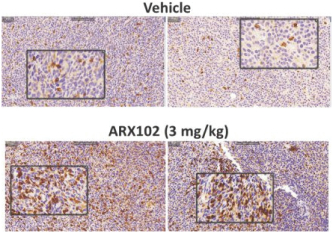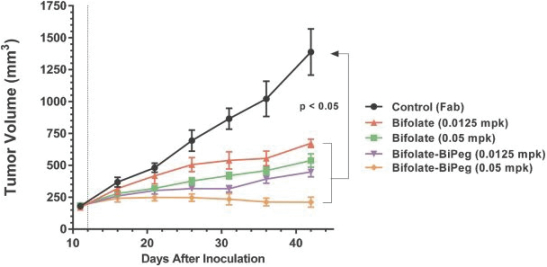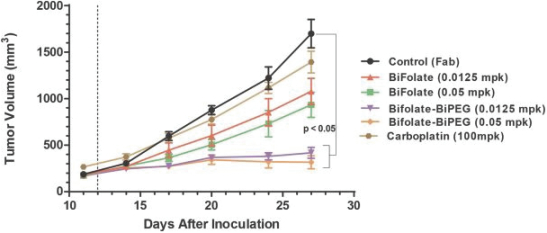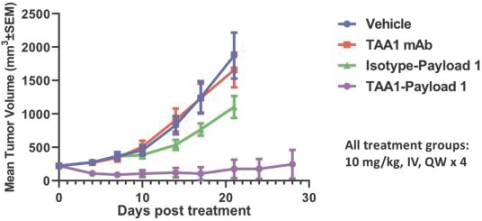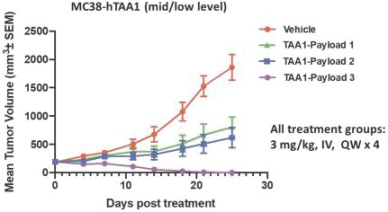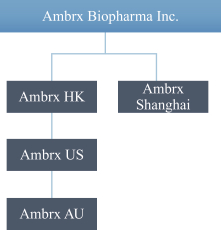acid. Our patent applications contain claims covering orthogonal tRNA synthetases (RSs); orthogonal tRNA’s; cells that contain the orthogonal RS and tRNA; and methods for manufacturing polypeptides comprising
a non-natively encoded
amino acid. Our patent applications also have claims directed at protecting our linkers, payloads, unconjugated and conjugated compounds, including click chemistry and oxime chemistry conjugates. The issued U.S. patents and any U.S. patents issuing from our pending U.S. patent applications will expire between 2024 and 2031. For our ReCODE platform, we own issued foreign patents in Australia, Canada, China, Europe, Hong Kong, India, Israel, Japan, Mexico, New Zealand, Singapore, and South Korea. For our EuCODE platform, we own issued foreign patents in Australia, Canada, China, Europe, Hong Kong, India, Israel, Japan, Mexico, New Zealand, and Singapore.
Moreover, even if the patents that will issue from our pending U.S. applications are to expire after 2031, we believe we have appropriately protected our EuCODE and ReCODE platforms with the substantial body of trade secrets
and know-how that
we have developed over the last 15 years of research at Ambrx.
Our EuCODE mammalian platform is utilized to generate most of our ADC bioconjugates. Our solely owned patent estate includes 3 issued U.S. patents and 70 issued foreign patents with claims directed to an orthogonal tRNA for vertebrate cells that mediates the incorporation
of non-natively encoded
amino acids into an expressed protein, methods of manufacturing in a vertebrate cell a protein
comprising non-natively encoded
amino acids using an orthogonal aminoacyl tRNA synthetase that preferentially aminoacylates the orthogonal tRNA with
the non-natively encoded
amino acid, and suppressor tRNA transcription in vertebrate cells.
In addition, our EuCODE mammalian platform is protected by a body of trade secrets that is based on more than 15 years of research and development at Ambrx. We believe that these trade secrets have provided, and will continue to provide, us with a competitive edge for developing and then manufacturing our product candidates well after our patents have expired.
With regard to our ReCODE bacterial platform, we also have an exclusive license to a patent portfolio containing three families of U.S. and foreign patents and patent
applications co-owned by
TSRI and The Regents of the University of California. Through this exclusive license, we currently have exclusive rights to 28 issued U.S. patents, and 138 issued foreign patents relating to methods and reagents for making proteins
containing non-natively encoded
amino acids. Any patent within this portfolio that has issued or may issue in the future will expire between 2022 and 2026.
Our EuCODE patent estate also includes applications with claims directed to our ADC product candidates anti-HER2, anti-PSMA and anti-CD70 ADCs; claims directed to our IOC product
candidates IL-2, and
TLR7/8 agonists; claims directed to our platform technology for future products and developments.
The ability to obtain patent protection and the degree of such protection depends on a number of factors, including the extent of the prior art, the novelty
and non-obviousness of
the invention, and the ability to satisfy the enablement requirement of the patent laws. In addition, for each of our patent applications, claiming strategy is determined on
taking into consideration existing patent office rules and regulations, advice of our counsel in each jurisdiction, and our business model. We cannot be sure that patents will be granted with respect to any of our pending patent applications or with respect to any patent applications we may own or license in the future, nor can we be sure that any of our existing patents or any patents we may own or license in the future will be useful in protecting our technology.
The term of individual patents depends upon the laws of the countries in which they are obtained. In most countries in which we file, the patent term is 20 years from the earliest date of filing of
a non-provisional patent
application. However, the term of U.S. patents may be extended for delays incurred due to compliance with the FDA requirements or by delays encountered during prosecution that are caused by the USPTO. For example, for drugs that are regulated by the FDA under the Hatch-Waxman Act, it is permitted to extend the term of a patent that covers such a drug for up to five years beyond the normal expiration date of the patent. In the future, if and
